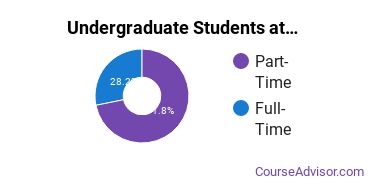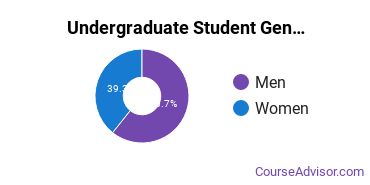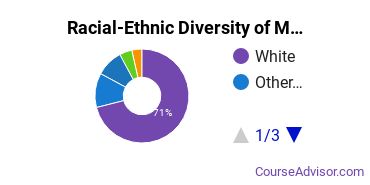Manchester Community College Overview
Manchester Community College is a public institution located in Manchester, New Hampshire. The city atmosphere of Manchester makes it a great place for students who enjoy having lots of educational and entertainment options.
What Is Manchester Community College Known For?
- The highest award offered at MCC is the associate's degree.
- In a recent academic period24% of the faculty were full-time.
- Students who graduate from MCC with a bachelor's degree make about $49,063 a year. That's 20% more than those who graduate from other schools.
Where Is Manchester Community College?

Contact details for MCC are given below.
| Contact Details | |
|---|---|
| Address: | 1066 Front St, Manchester, NH 03102-8518 |
| Phone: | 603-206-8000 |
| Website: | www.mccnh.edu |
How Do I Get Into MCC?
You can apply to MCC online at: www.mccnh.edu/admissions
Can I Afford Manchester Community College?
Student Loan Debt
It's not uncommon for college students to take out loans to pay for school. In fact, almost 66% of students nationwide depend at least partially on loans. At MCC, approximately 34% of students took out student loans averaging $5,536 a year. That adds up to $22,144 over four years for those students.
Explore Best Ranked Schools for You
Manchester Community College Undergraduate Student Diversity

Gender Diversity
Of the 676 full-time undergraduates at MCC, 60% are male and 40% are female.

Racial-Ethnic Diversity
The racial-ethnic breakdown of Manchester Community College students is as follows.

| Race/Ethnicity | Number of Grads |
|---|---|
| Asian | 17 |
| Black or African American | 26 |
| Hispanic or Latino | 54 |
| White | 497 |
| International Students | 0 |
| Other Races/Ethnicities | 82 |
Manchester Community College Undergraduate Concentrations
The table below shows the number of awards for each concentration.
References
*The racial-ethnic minorities count is calculated by taking the total number of students and subtracting white students, international students, and students whose race/ethnicity was unknown. This number is then divided by the total number of students at the school to obtain the racial-ethnic minorities percentage.
More about our data sources and methodologies.
